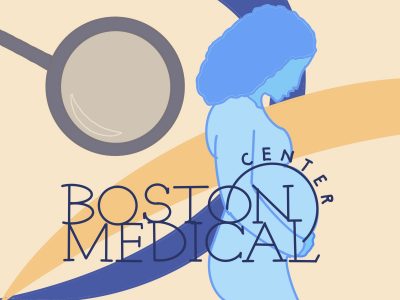Boston University may finally be living up to the trailblazing legacy of some of its famous alumni like Alexandria Ocasio-Cortez and Martin Luther King Jr.
A BU Today article published last week highlighted the BU School of Medicine’s dedication to providing abortion education, something many medical schools around the country tiptoe around or omit entirely. The article emphasized that the school has made great strides in increasing students’ exposure to the controversial procedure, now implementing one mandatory lecture, an additional optional one, and greater opportunity to access clinical abortion training.
An article on BU’s educational stance on an issue like abortion — which has long been controversial — may feel out-of-the-blue and like a random reminder from BU that they are, in fact, liberal and “committed to generating new knowledge to benefit society,” as its mission statement goes. However, in the face of a conservative Supreme Court that seems poised to take down abortion once and for all, BU’s commitment to educating its students on the procedure is of immediate importance.

On Dec. 1 of 2021, the Supreme Court heard “the most serious legal challenge in a generation to a woman’s right to obtain an abortion.”
The case is Dobbs v. Jackson Women’s Health Organization and concerns a 2018 Mississippi law that seeks to ban the majority of abortions after 15 weeks of pregnancy. If the court upholds the law, they would effectively overturn previous precedents set by Roe v. Wade and Planned Parenthood of Southeastern Pennsylvania vs. Casey, which prevented states from banning abortion until much later in the pregnancy. More drastically, the Guttmacher Institute reports that overturning these precedents could result in 26 states banning abortion outright.
These results haven’t happened yet — and abortion remains largely accessible in legal terms — but across the nation, many medical schools still seem to have a clandestine view of the procedure. One survey reported that 17% of US medical schools offered no formal education on abortion in pre-clinical or clinical years. In a majority of schools, only a single lecture on the subject or a non-required rotation is required. According to another survey, 70% of clinical students reported their abortion training as being inadequate.
It seems that medical schools around the country have let the intense political debate surrounding abortion shape what should be comprehensive education on the issue. A quarter of American women have received an abortion at some point in their lives. For a procedure so common, shouldn’t our education system ensure future doctors are familiar with how it works?
Medical schools’ timidity regarding abortion goes directly against the American College of Obstetricians and Gynecologists as well, which recommends the inclusion of abortion education in the medical curriculum.
In recent years, failure to include this important training has led to issues such as medical students believing false statements about the nature of abortion and some trained OB-GYNs being unable to carry out abortions or even provide referrals for them.
The prospect of Roe v. Wade’s demise has made the sparseness of abortion education even more important. If the landmark Supreme Court case does get overturned, abortion would not simply cease to exist.
While many states will choose to ban the procedure, blue states like Massachusetts will most likely keep it available. In these states, doctors who are properly educated on abortion will continue to be a necessity.
In areas where access could be restricted, we can expect to see a rise in self-induced abortions and increased complications facing those who must travel long distances to receive the procedure. For these cases, abortion education becomes even more vital to save the lives of women who have been denied their basic reproductive rights.
After almost 50 years of controversy following Roe v. Wade, it is clear that abortion is an issue fraught with moral dilemma. But in a setting like medical school, where the purpose is to give students the information they need to care for patients, an individual’s morals may not be the higher priority.
At BU, though students have expanded access to clinical exposure, they are also free to opt out of viewing an abortion procedure during clinical rotations. They barely have to attend one lecture on the subject. If your morals prevent you from partaking even in this minimal amount of training for a procedure that is internationally recognized as a basic healthcare need, perhaps medical school is not the ideal setting for you.





















































































































